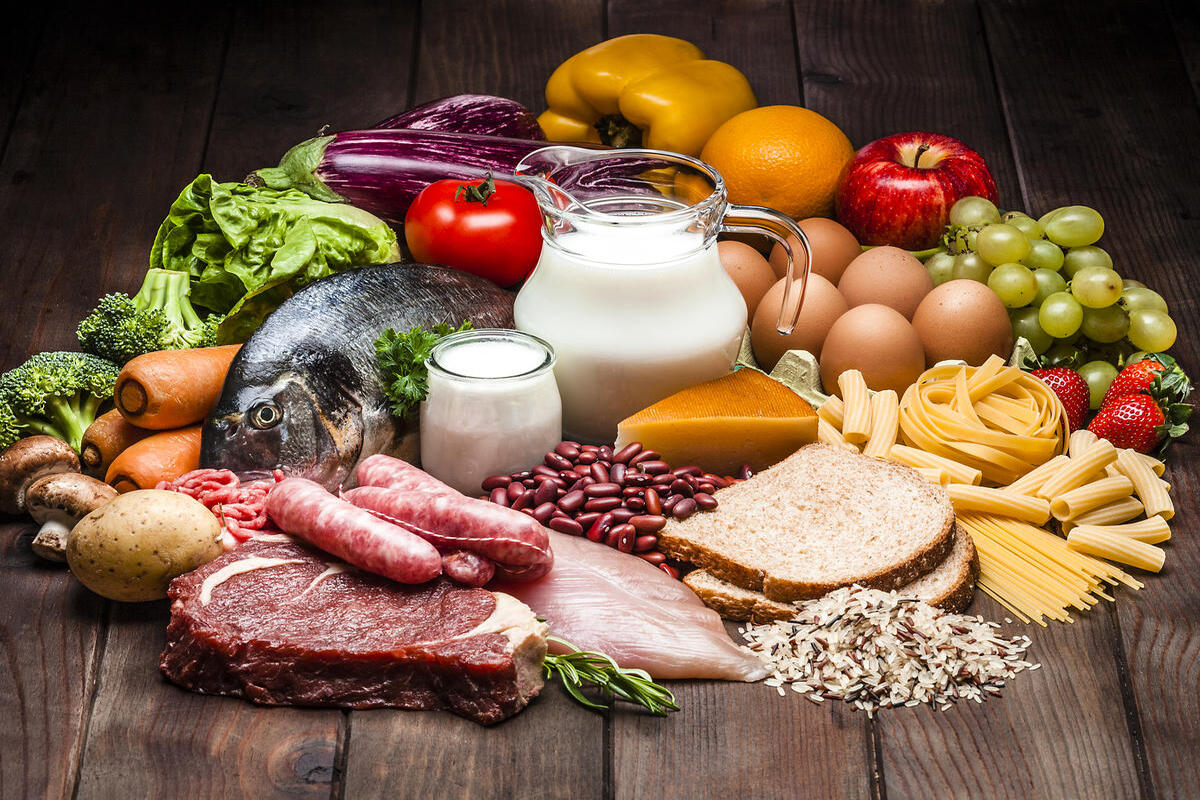We often hear this line a lot from our doctors or parents that a Balanced diet is very important for our body, we must take it and so on.
But, have you ever thought that what is a balanced diet and why it is important, and what will happen if you don’t take it. So, here we are with the meaning and importance of a balanced diet. Read on to grab the full information!
What is a balanced diet?
When we talk about a balanced diet it means choosing a variety of foods from the different food groups – specifically: vegetables and fruits; protein (meat, fish, eggs, beans, soy); dairy (low-fat milk, cheese, yogurt); carbohydrates (starchy foods like rice, pasta, potatoes, and bread – preferably wholegrain or wholewheat varieties); and a small number of healthy fats such as the unsaturated fat from olive oil.
Avoid sugary drinks and foods, and foods with added saturated fat like processed meats, chips, pastries, and pies. Drink plenty of water to keep hydrated and to help your body function better.
Benefits of a Balanced diet:
1. Growth and Development
The body is under a constant process of growth and repair. It needs nutrients in the form of protein, vitamins, and minerals to form new cells. A balanced diet involves servings of fruits and vegetables, and lean protein from sources such as lean meats, nuts, and whole grains.
2. Weight Control
A well-balanced diet can also help in weight control in people who are overweight or people who are working to maintain a steady weight. Such a diet involves low-calorie foods that are dense in nutrients and fiber which satisfy hunger without the extra calories.
3. Supplies Energy
A calorie is a unit of energy obtained from foods. Foods with higher calories give you the energy to stay alert and functioning all day. However, intake of more calories than what you need can cause weight gain.
4. Builds Immunity
Foods rich in Vitamins like A, C, E, selenium, and potassium are essential for building a robust immune system that can fight off infections to keep you healthy.
5. Improves Mental Well-being
Along with making you strong and improving your immunity, balanced diets consisting of fish, high-quality meats, whole grains, fruits, and vegetables can boost mental health.
What are the Advantages of Having a Balanced Diet?
- Choosing a balanced diet is the first step toward a happy and healthy lifestyle.
- Vitamins and minerals are vital to maintaining healthy immunity and growth.
- Healthy diets can protect the body from lifestyle-related, non-communicable diseases such as diabetes, obesity, cardiovascular disease, skeletal problems, and many types of cancer.
- Balanced diets, along with fighting obesity, help maintain optimal body weight.
Elements of a balanced diet:
Carbohydrates
An excellent source of energy, carbohydrates should comprise roughly 60% of a person’s diet or 310 grams. This is where most of your energy comes from if you’re engaged in activity throughout the day; eat lots of carb-rich food items such as rice, pasta, potatoes, and wheat. This is a key part of a balanced diet.
Vitamins
There are so many essential vitamins today but pay particular attention to the intake of the following:
- Vitamin A
- Vitamin C
- Vitamin B
- Vitamin D
Taking multivitamins for these four is ideal, although obtaining them from fruits and vegetables is even better.
Minerals
Minerals aid with the release of energy from food items, plus they interact with the organs to promote growth. For example, iron helps with energy, while calcium works towards bone and teeth development. Again, there are lots of minerals today, but the most important ones in your diet are iodine, potassium, sodium, and those mentioned above.
Unsaturated Fats
A lot of people avoid fat, thinking that it causes weight gain, but this is far from the truth. Healthy fats, or those derived from good sources, are dairy products, meat, and fish. Their main function is to help regulate body temperature, as well as the absorption of vitamins. They help with slow energy release, which is perfect for long-distance runners. We are all advised to consume around 70 grams per day.
Protein
Another key component of a healthy balanced diet is protein, which comes mainly from lean meat, but dietary evidence proves that you can gain protein from non-meat sources also. Protein primarily helps with the development of skin, hair, and muscles. The maximum daily amount is set at 50 grams for a typical adult.
Water
Most lists of a balanced healthy diet consist only of 6 items, but this article gives a total of 7, adding water to the list. The fact is few people consider the importance of water in their diet.
Fizzy drinks, coffee, tea, and juice drinks cannot provide the same goodness as water. It hydrates the body and facilitates the movement of all the other components above. Suggested intake is at least 8 glasses a day.












